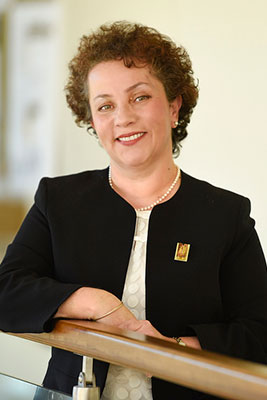Technology Influence on Travel Demand and Behaviors

Research Team
Virginia Sisiopiku, PhD., University of Alabama at Birmingham
Mohammed Hadi, Ph.D., Florida International University
Noreen McDonald, Ph.D., University of North Carolina at Chapel Hill
Ruth Steiner, Ph.D., University of Florida
Ossama Ramadan, Ph.D., formerly at University of Alabama at Birmingham
UTC Project Info Final Report Project Brief - Questionnaire Provides Insights into Users' Attitudes, Preferences, and Choices toward Transportation Network Services Technology Transfer Report
Project Description
Over the last decade, the popularity of Transportation Network Companies (TNCs) –commercial, APP-based ride-sharing companies such as Uber and Lyft—has been increasing at a steady pace, even in medium size cities. However, it is not clear how travelers respond to these smartphone-based services and how these services may influence their mode-choice or travel behavior. Researchers used a mixed methods approach to examine the influence of technology on travelers’ attitudes, preferences, and choices and the potential impact of their choices on transportation services in North Carolina and Alabama.
In North Carolina, researchers surveyed 600 millennials (born 1981-1996) about their travel behavior and found that most had used ridehailing services—with 66% having used Lyft, Uber, or both—and a significant percentage (47%) stated that they could take public transit, but service availability or inconvenience made this impossible, indicating that there may be a latent demand for public transit.
A second survey completed by over 450 transportation users in the Birmingham, Alabama Metro area analyzed travel preferences, practices and attitudes toward TNCs as a travel mode of choice. 45% of those surveyed had used TNC services. The most important determinants that made TNCs a preferable mode to Birmingham travelers included convenience of use and reduction of concerns for traffic safety (especially for late night trips to bars and eating establishments). Lack of parking availability at the destination and lack of vehicle availability were also listed as reasons for selecting TNCs as a mode of travel.
Researchers also evaluated the feasibility of building an agent-based simulation model of the Birmingham Metro Area in order to study the impact of shifts in travel demand due to applications of shared-use economy on local and regional congestion. The prototype model was developed using the Multi-Agent Transport Simulation (MATSim) modeling platform and future research will extend the prototype to incorporate public transit and quantify the impacts from the integration of TNCs and transit on travel demand and congestion.
The insights gained by this research can inform transportation agencies, TNCs, and other shared-mode services about the needs and opportunities of the local market and enable them to better understand how the travel behavior, mode-choice, and travel demand might affect the use of TNCs in the future.
Products
- Birmingham, AL activity-based model considering attitudes and market penetration – The product is a prototype agent-based simulation model of the Birmingham, AL metropolitan region. The model is developed using the MATSim platform and can be used by transportation planners and researchers to study the impact of shifts in travel demand due to applications of shared-use economy on local and regional congestion.
- User questionnaire surveys on transportation user behaviors – The products are two questionnaire surveys that can be used to understand transportation users’ travel behaviors in markets where ride-hailing services have taken off in terms of use and coverage in the recent years. The questionnaire surveys can be used by other researchers and analysts who are interested in documenting users’ preferences, attitudes, and mode choices in markets where Transportation Network Services (TNS) are available. Moreover, the surveys can be used by transportation researchers that are seeking to understand determinants that drive people towards the use of TNCs services. The surveys were implemented in Alabama and North Carolina.
Who can benefit from the finding(s) of this project?
- Transportation agencies, TNCs, other shared-mode services, transportation planners, and researchers interested in studying impacts of shifts in travel demand and seeking to understand determinants that drive people towards use of TNCs services
Broader Impacts
The report is generating new knowledge:
(a) documenting travel behavior of millennials in US Southeast and their attitudes toward transportation network companies and public transit,
(b) documenting travel behaviors and transportation network companies use in Birmingham metro, and
(c) demonstrating how data from such surveys can be used to support agent-based simulation modeling that can assist researchers and cities to assess TNCs impacts on transportation network’s performance.
The findings of the study serve as a means to understand the influence of transportation network services and better-plan mobility in mid-size cities. They also assist to address needs/opportunities of the local market and help to better understand the behaviors/choices of users and the possible influence on travel demand patterns.